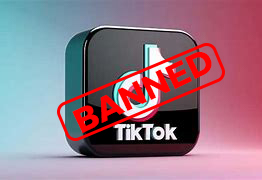Unless the Supreme Court grants ByteDance, the Chinese company that owns the app, a last-ditch legal appeal arguing that doing so would be unconstitutional, TikTok would be blocked in the US on January 19.
Will Americans quit using the platform, however, even if the nation’s highest court concurs with Congress and lower courts that it poses a national security risk?
Even if the courts maintain the ban, would there be methods to get around it, or will Donald Trump, the president-elect, be able to stop a rule he claims he opposes?
And who benefits from the uncertainty surrounding TikTok’s future, regardless of what happens to the platform?
Can people still use TikTok even if it’s banned?
TikTok would most likely be banned in the US by ordering app stores like the Google Play Store and Apple’s App Store to block its downloads in that area. US lawmakers have already instructed tech companies to prepare to take the app down from their stores in the event that a ban is implemented.
Why does the US want to ban TikTok?
Trump urges US Supreme Court to delay TikTok ban
There are, of course, methods to get past such a prohibition.
Numerous films explaining how to utilize a virtual private network, or VPN, to make it look as though you are in a different location, are already making the rounds on TikTok.
Theoretically, anyone can access apps from different countries because most devices allow users to alter the app store’s area. However, this could lead to various issues and possibly violate terms of service agreements.
It is also possible to install apps that have been obtained over the internet by altering a device, which carries risks of its own and may violate copyright laws. The government, however, has also foreseen this and is suggesting that “internet hosting services” be prohibited from granting users access to the app.
Those who are determined to use TikTok after it goes into effect will probably be able to do so if the ban takes this form, but it won’t be the same as what they are used to.
ICYMT: Yorkshire Derby in FA Cup
How else could TikTok be banned?
The government still has other options. For instance, in 2020, India banned TikTok and ordered internet providers to completely prohibit access to the app.
Furthermore, TikTok could theoretically determine whether a user is based in the US and then just show them a screen stating that the app is unavailable in their country, even if they did use a VPN.
Although it is unclear if TikTok will choose to support the government in its own ban, Reuters reports that it intends to.
According to TikTok’s own attorney, if the Supreme Court does not decide in favor of the company, the app will “go dark” in the US.
Even the specialists are unsure of what will happen next because of the complexity of the problem.
Professor Milton L. Mueller of the Georgia Institute of Technology, who submitted a legal brief in favor of TikTok, stated that it is challenging to ascertain the precise consequences of a ban because it is unclear to what extent the US may exercise its authority to enforce the legislation.
However, he stated that the effect it would have on users and the internet as a whole was obvious.
“It would totally legitimise the fragmentation of the internet along national or jurisdictional boundaries,” he stated.
Will Trump still be able to intervene?
Trump has made it obvious that he does not want the law to be implemented, and he has asked the Supreme Court to postpone it until he finds a “political solution.”
However, Trump has no authority to reverse the law if the court maintain it; it would take effect the day before he takes office again.
He could, however, just instruct the DOJ not to enforce it.
The law would still be in effect but would be practically superseded since the government would be essentially informing Apple and Google that they would not face consequences for continuing to grant access to TikTok.
Since it would essentially force businesses to take the president’s word that they won’t be punished, it is understandable that the companies may feel uneasy about breaking the law even if they have been informed it’s okay.
What platforms could people turn to instead?
According to TikTok, 170 million Americans used the app for 51 minutes a day on average in 2024.
Insider Intelligence analyst Jasmine Enberg claims that TikTok’s big tech competitors stand to gain greatly from a ban or other changes that make the app less accessible.
“Meta-owned Instagram Reels and YouTube Shorts, owned by Google, are the most natural fits for displaced users, creators, and advertisers,” according to her.
Facebook might gain as well, although according to Ms. Enberg, the contentious policy changes that CEO Mark Zuckerberg proposed may make the platform less appealing, as they do for other Meta platforms.
Because users bring advertisers to these platforms, a prohibition might significantly increase their revenue.
“Chief Marketing Officers who we’ve spoken with confirmed that they will divert their media dollars to Meta and Google if they can no longer advertise on TikTok – this is the same behaviour we saw in India when they banned TikTok in 2020” , stated Kelsey Chickering, principal analyst at Forrester
After a ban, Lemon8, which is also owned by ByteDance, would have been a clear destination for users, but the rule says that it also applies to other apps that the company owns or runs. This implies that Lemon8 will most likely also have to deal with being blocked in the US.
Twitch, which gained notoriety for broadcasting livestreams—a well-liked TikTok feature—is another possible winner. Though it keeps expanding with new material, Twitch is most famous among gamers.
Other Chinese-owned platforms have experienced quick development in the US and the UK, including Xiaohongshu, which its US users refer to as RedNote.
However, some argue that no app now in use can fully replace TikTok, especially its feature TikTok Shop, which allows viewers to buy things straight from videos and generates a significant amount of revenue for US producers.
The CEO of digital marketing firm Code3, Craig Atkinson, stated that there was no direct rival that consumers could simply move to. He also mentioned that his company was still acquiring new clients to develop TikTok Shop campaigns as late as December.
Could a new buyer still emerge?
ByteDance has been adamant up to this point that it has no plans to sell its greatest asset in the United States.
When a president who takes pride in “the art of the deal” comes to the White House, though, would that alter if it is truly outlawed?
Although TikTok has now called this “pure fiction,” Bloomberg News reported on Tuesday that the company was considering a sale to billionaire Elon Musk, and potential buyers are still in line.
Some have already indicated interest in purchasing it, including billionaire businessman Frank McCourt and Trump’s former Treasury Secretary Steven Mnuchin.
Former Los Angeles Dodgers baseball club owner Mr. McCourt claimed to have verbally committed $20 billion from a group of investors to bid on TikTok.
The suggested owner is even more unconventional and far less serious.
The biggest YouTuber in the world MrBeast has claimed he’s now in the running to make a deal after he had billionaires reaching out to him about it. Though it may seem like a joke, he has a significant financial incentive to try and save the app – MrBeast has more than 100m followers on TikTok.




























